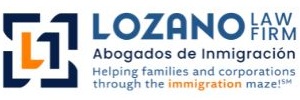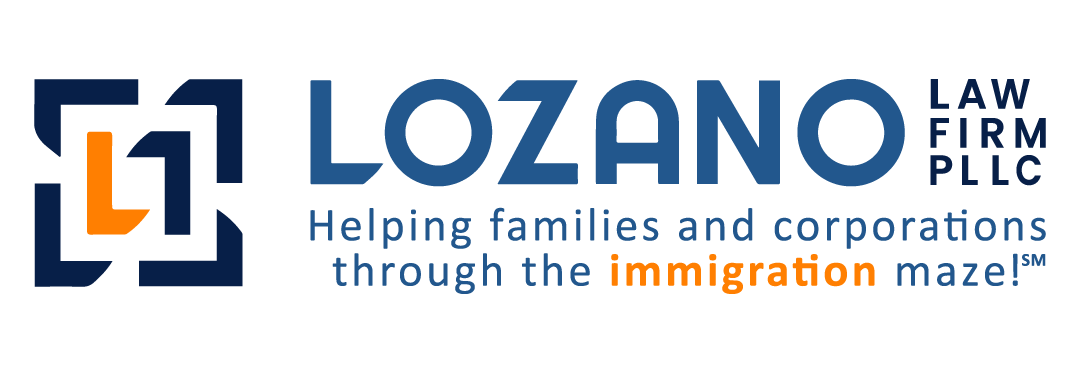TL;DR
- The EB-5 visa requires a minimum investment of $900,000 and creation of 10 U.S. jobs.
- Investors often ask about regional centers, conditional green cards, and timelines.
- Choosing a reputable project and providing a lawful source of funds are key.
- After two years, investors must remove the conditions on their green card by filing Form I-829.
Investing for a better future in the United States is an exciting step, but it comes with many questions. We’ve guided many EB-5 clients through this journey, and specific concerns arise repeatedly.
If you’re just beginning to explore this path, you may find reassurance and clarity in the answers below. These are the most common inquiries we receive from new EB-5 investors, along with the guidance we provide in response.
What Is The Minimum Investment For EB-5?
The minimum investment for the EB-5 program is currently $900,000 for projects located in Targeted Employment Areas (TEAs), which are either rural areas or those with high unemployment rates. For investments outside TEAs, the threshold rises to $1.8 million.
The investment must be in a new commercial enterprise and placed at risk, which means there are no guarantees of returns. The law also requires the creation of at least 10 full-time jobs for U.S. workers.
The project must sustain these jobs for the two-year conditional residence period. If the investor cannot meet the required number of job creations, USCIS may deny the petition.
It’s critical to remember that federal regulations set the thresholds and may be adjusted. Reviewing official guidance before committing is always wise.
What Is A Regional Center & Can I Use One?
A Regional Center is a business entity approved by the United States Citizenship and Immigration Services (USCIS) to sponsor EB-5 investment projects. Most new investors use regional centers because they offer a more passive investment route.
These centers often simplify job creation requirements through indirect job calculations, using accepted economic models. With direct EB-5 investments, you must directly employ at least 10 workers.
Regional centers allow job creation through spending and economic impact, not just direct hires. This is especially helpful for investors who don’t want to actively manage a business.
That said, it’s vital to evaluate a regional center’s history, structure, and project success rate. Due diligence reduces the risk of delays or denial.
What Proof Must I Submit For The Source Of Funds?
Proving the lawful source of funds is one of the most demanding parts of an EB-5 application. USCIS expects detailed, consistent documentation that clearly shows the money you’re investing comes from legal and traceable sources.
You may need to submit income tax returns, business records, property sale contracts, bank records, affidavits, and evidence of currency exchange. Gifts are permitted but must include gift letters and proof of how the donor obtained the funds.
If your documents are incomplete or inconsistent, USCIS may issue a Request for Evidence (RFE), delaying your case or potentially leading to a denial. Thorough preparation is essential.
What’s The Timeline For EB-5 Approval?
The EB-5 journey is a marathon, not a sprint. Processing times depend on your nationality and USCIS’s current workload. On average, an I-526 petition can take 18 to 30 months for adjudication.
Once approved, if you’re outside the U.S., you’ll go through consular processing. It adds 6–12 months to your timeline. If you’re in the U.S. on a valid visa, you may adjust your status using Form I-485, although the process varies by location.
After two years of conditional residence, you’ll need to file Form I-829 to remove conditions. That stage currently takes between 21 and 45 months, so patience is a key part of the journey.
Conditional & Permanent Green Cards: What’s The Difference?
When your EB-5 petition is approved and a visa is issued, you receive a conditional green card, valid for two years. It means you are a conditional permanent resident during that time.
Before the card expires, you must file Form I-829 to demonstrate that you sustained your investment and that you created 10 jobs. Approval of this petition removes the conditions, and you receive a permanent green card.
It’s critical to file the I-829 during the 90-day window before the card’s expiration. Missing that window can lead to loss of status and removal proceedings.
Can My Family Come With Me?
Yes, your spouse and unmarried children under 21 are eligible for EB-5 derivative visas. They can live, work, and attend school in the U.S. with you and follow the same conditional-to-permanent green card process.
Timing is essential. If your child nears their 21st birthday, the Child Status Protection Act (CSPA) might freeze their age. It depends on how long the I-526 was pending. Still, some children age out if you don’t manage the timelines carefully.
To avoid complications, consult early with an immigration attorney about family timing. It may impact how and when you proceed with your application.
What Happens If The EB-5 Project Fails?
It is a real concern. If your EB-5 project fails, USCIS may deny your I-829 petition. That could mean loss of your green card and immigration status.
However, if you already created the required jobs or are substantially on track before failure, and your investment was truly at risk, you might still meet EB-5 criteria. Each case depends on facts, timing, and documentation.
To minimize your risk, select a project with a proven track record and transparent financials. Third-party due diligence reviews are often worthwhile before investing large sums.
Can I Work Or Start A Business On An EB-5 Visa?
Yes, once you have your conditional green card, you become a lawful permanent resident. It gives you the same work rights as any other green card holder, you can be employed, self-employed, or open your own business.
If you choose to invest in your startup or business for EB-5 purposes, you must ensure it meets all requirements. These include job creation and a lawful source of funds.
You must also demonstrate active involvement in management, such as serving as a corporate officer or board member. The freedom to work in any field is a significant benefit of this visa class.
Can I Live Anywhere In The U.S.?
Generally, yes. Your EB-5 status doesn’t restrict where you reside in the U.S. However, if you are a direct investor actively managing a business, it’s logical that you live near that business.
With regional center investments, this requirement is relaxed. You’re typically a limited partner, meaning your residence does not need to be near the project. That makes the program attractive to investors who prefer geographic flexibility.
Nonetheless, it’s wise to maintain a consistent U.S. address for immigration and tax purposes. It avoids prolonged absences that might affect your future naturalization eligibility.
When Can I Apply For U.S. Citizenship?
Once you’ve had your permanent green card for at least five years, you may apply for U.S. citizenship via Form N-400, provided you meet all the usual eligibility criteria.
These include at least 30 months of physical presence in the U.S. during that period, no trips longer than six months, continuous residence, and good moral character. You’ll also need to pass a civics test and an English exam, unless you are exempt.
Becoming a citizen offers additional protections, including the right to vote and the ability to sponsor more family members for immigration.
What Are Some Of The Key Legal Terms?
| Term | Definition |
| I-526 | An immigrant petition, filed by EB-5 investors, initiates the process. |
| I-829 | Petition to remove conditions on a green card after two years. |
| TEA | Targeted Employment Area—rural or high-unemployment area, qualifying for lower investment. |
| Regional Center | USCIS-approved organization pooling EB-5 investments for larger projects. |
| Source of Funds | Documentation proving the lawful origin of investment capital. |
| Conditional Green Card | A 2-year conditional residency is granted to EB-5 investors before they have proven full compliance. |
Why Are These Questions Vital?
These questions guide every major decision in the EB-5 journey. Knowing the required investment, job creation criteria, and documentation standards protects you from delays, denials, or costly missteps.
Each step, from selecting a regional center to filing petitions, depends on accurate preparation and planning. Clarifying these topics early builds confidence and prevents last-minute surprises. It helps you navigate the system with foresight and clarity.
By focusing on these vital areas, you ensure your investment aligns with USCIS expectations. This positions you to meet immigration goals without setbacks. Timely answers also help structure your family’s transition to permanent residency smoothly.
Avoiding avoidable errors begins with asking the right questions. Clear answers empower better decisions, stronger petitions, and a more successful EB-5 immigration experience for you and your loved ones.
How Can Lozano Law Firm Guide You?
Navigating the EB-5 process requires careful planning and tailored advice. Lozano Law Firm in San Antonio, Texas, supports you from the initial consultation through to final green card approval.
We help you choose investment projects, document your funds, track deadlines, and respond to USCIS with precision. Your goals guide our strategy, and we approach every case with clarity and compassion.
With deep experience in investment immigration and a commitment to your success, we’re ready to help you make your U.S. future a reality.
How To Have A Successful EB-5 Journey?
The EB-5 journey entails strategic decisions, meticulous planning, and ongoing adherence to compliance. At Lozano Law Firm, we guide you through investment rules, timelines, and legal documentation.
Choosing the right project, verifying job creation, and proving lawful funds are critical. With clarity and guidance, your investment can lead to permanent residency, and eventually, a new future in America.

 Thank you for contacting us. Please complete this form and one of our team members will be in touch with you soon.
Thank you for contacting us. Please complete this form and one of our team members will be in touch with you soon.
